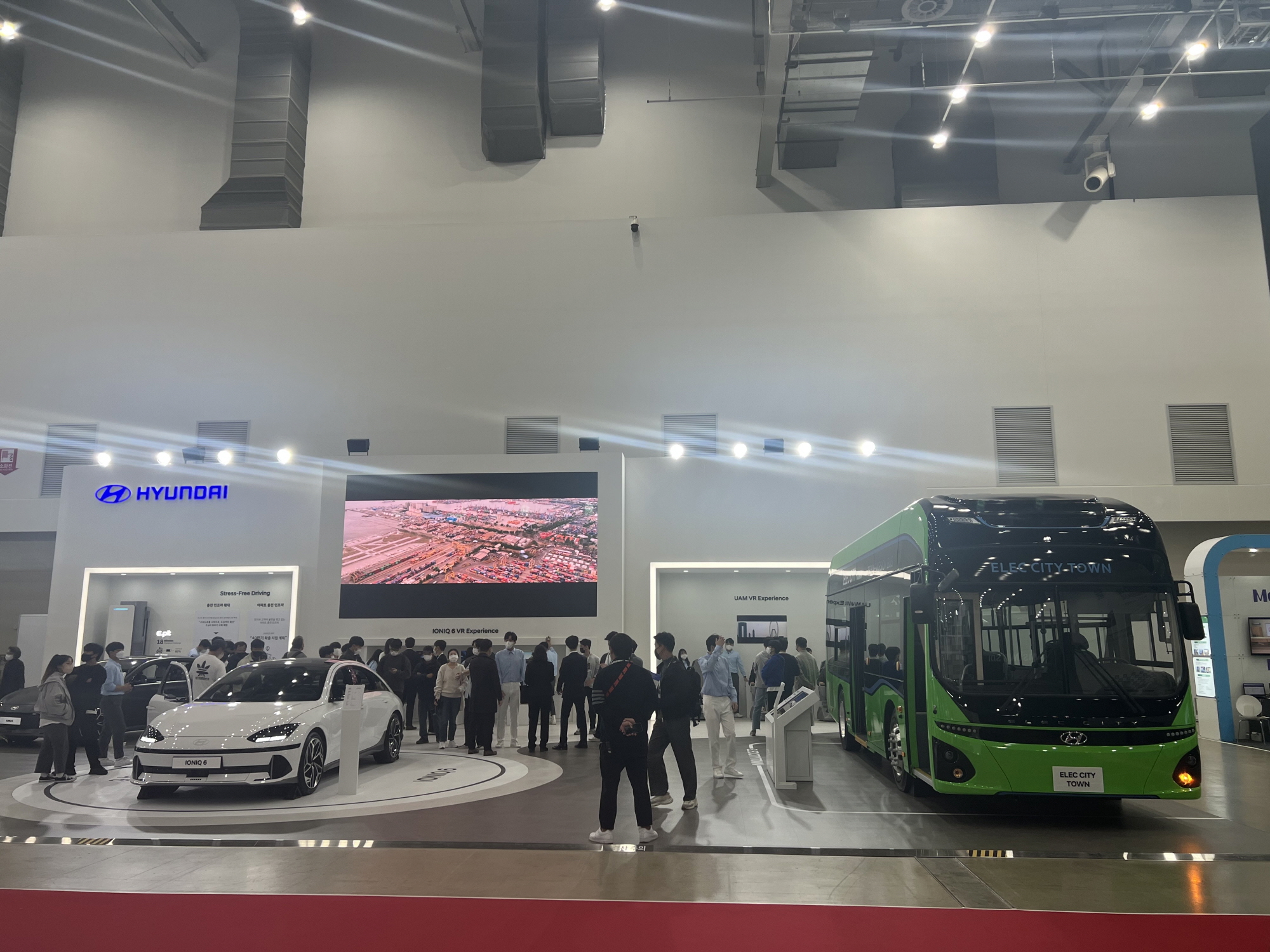
The Daegu International Mobility Expo showcases everything about electric cars, batteries, EV charging, and the future of automobiles.
On the 27th, as the autumn leaves turned red, I visited the ‘Daegu International Mobility Expo’ held at EXCO Daegu. The expo, which has been held since 2017, marks its sixth iteration this year and covers domestic automobiles and related components comprehensively.
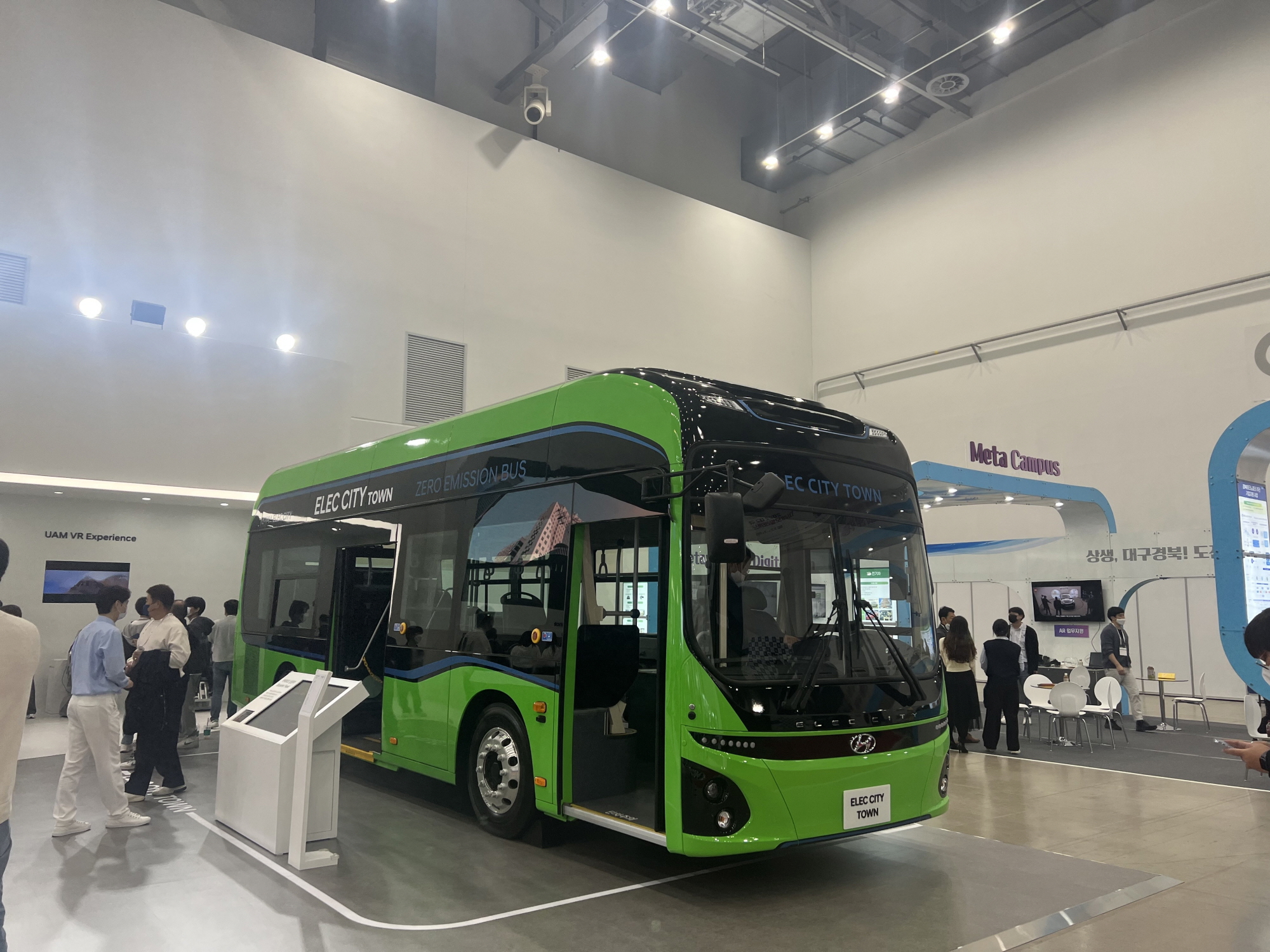
At the center of it all is Hyundai. Hyundai showcased its dedicated electric sedan, the Ioniq 6, and the Elec City medium-sized bus. The Ioniq 6 boasts a streamlined design inspired by aircraft and records the lowest drag coefficient of 0.21 among domestically sold vehicles.
Moreover, it became the first domestic electric vehicle to exceed the magic 500km range, achieving a distance of up to 524km on a full charge. Older visitors were seen paying close attention to the Ioniq 6 as they listened to the exhibits’ staff.
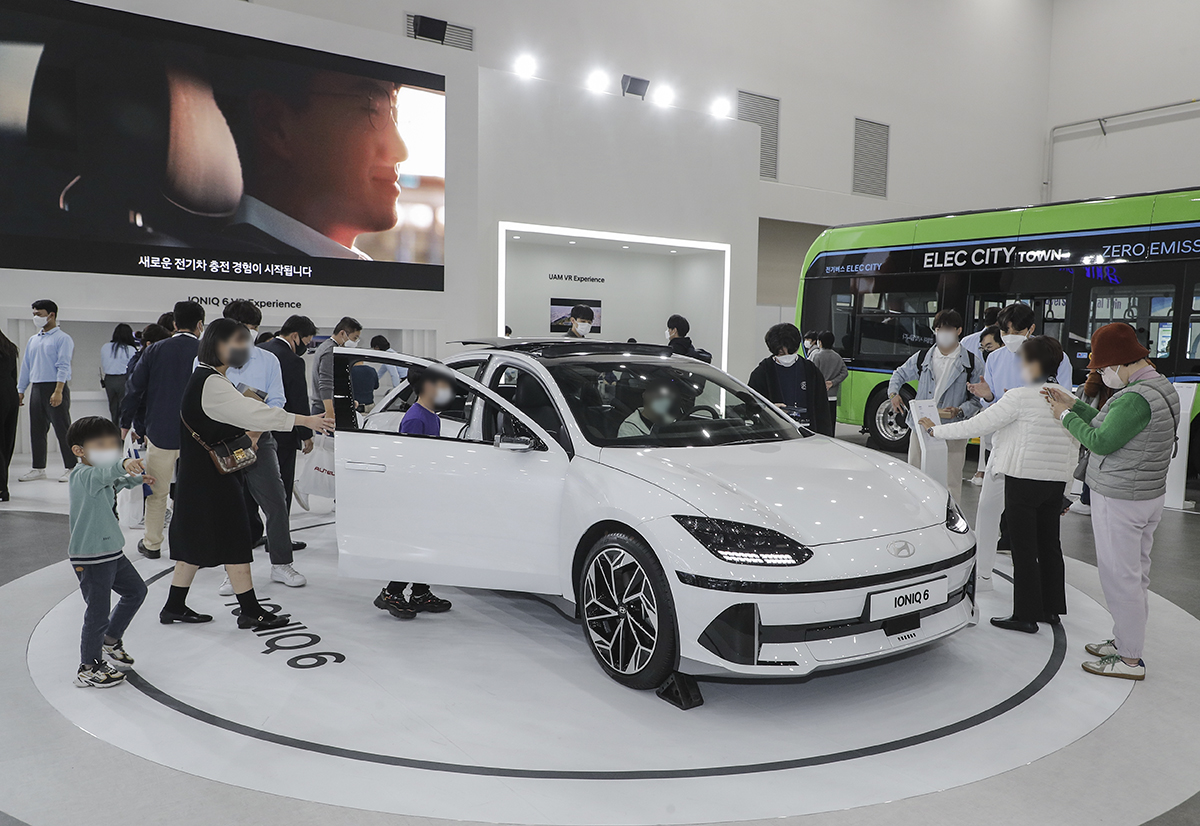
Next to it is the Elec City medium-sized bus. The Elec City medium bus is shorter at 9m compared to the standard 11m Elec City, which is used as a low-floor city bus. With a fully charged battery, it can travel up to 350km, leaving an extra 100km after covering the average daily distance of 250km typical for local buses. Compared to the Green City buses currently in use, the low-floor design makes it easier for elderly passengers with mobility challenges to board. Priced in the 200 million won range, it will compete with Chinese electric buses that are rapidly penetrating the route bus market.
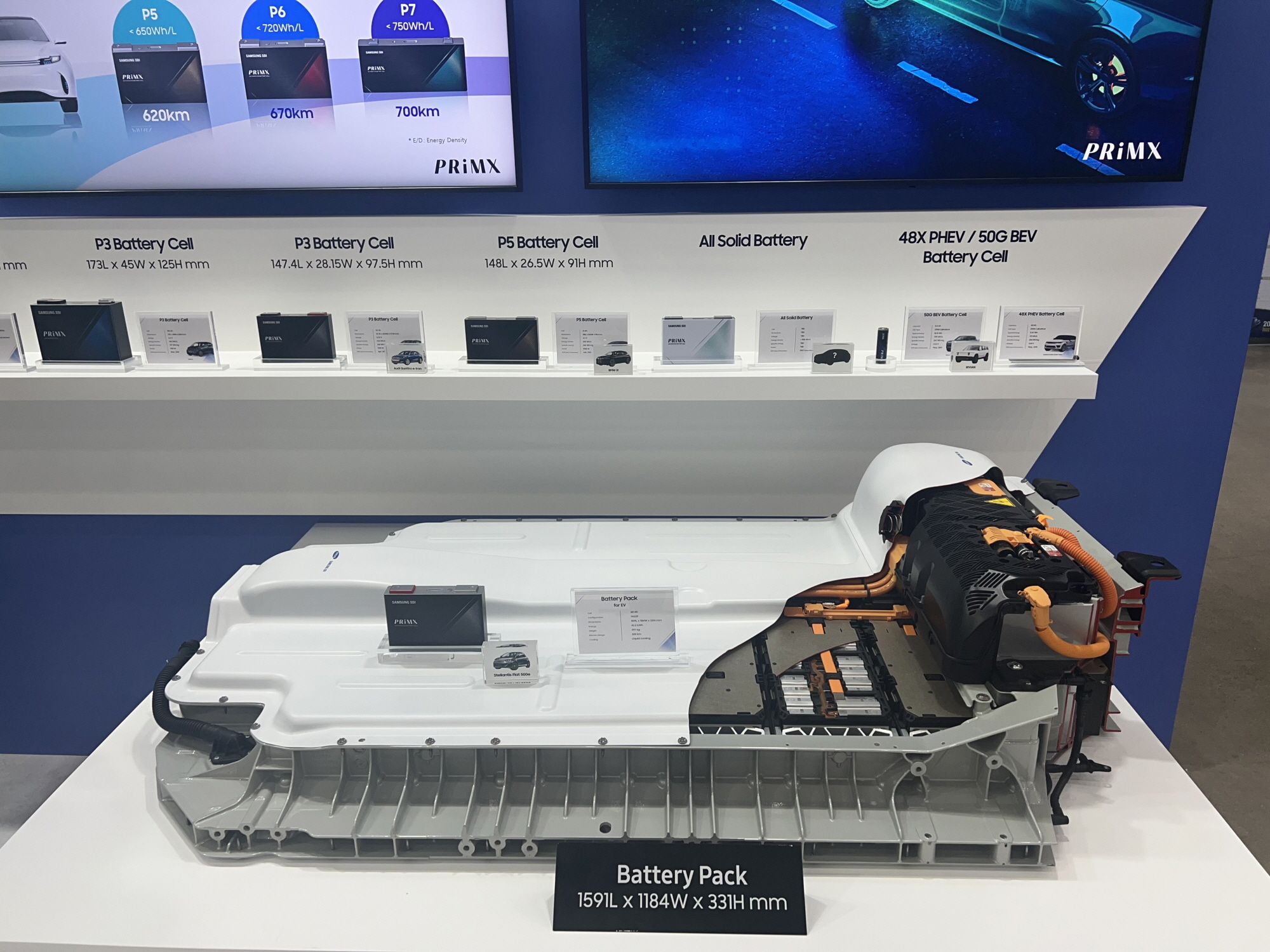
Displayed were also the batteries used in electric vehicles. Samsung SDI showcased models of batteries used for electric cars, and an actual battery applied to the Fiat 500e electric car drew attention.
LG Energy Solution highlighted its technology by exhibiting the electric pickup truck Hummer EV, which uses its batteries.
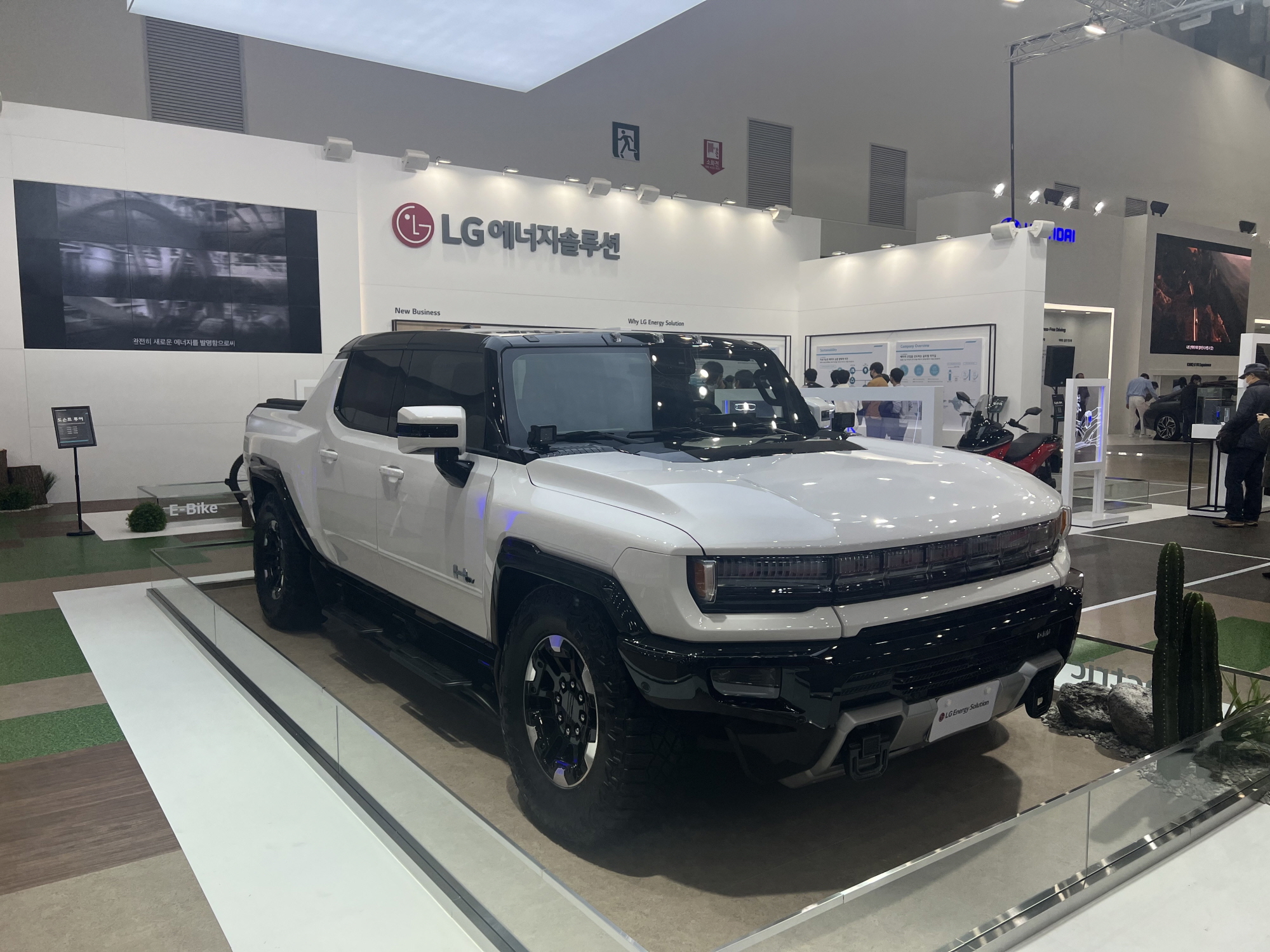
The exhibition also featured autonomous vehicles. Kakao Mobility and autonomous driving startup Autonomous A2Z presented a self-driving car based on the Carnival model.
This self-driving car, called “Dalgubeol,” integrates passenger and logistics demand-response services and is part of a pilot autonomous mobility project being implemented in Daegu. Three Dalgubeol autonomous vehicles operate during weekdays from 2 PM to 8 PM in the Daegu Technopolis. They can be summoned via Kakao T, and the service is free. Kakao Mobility stated, “Initially three Dalgubeol autonomous vehicles will operate, and based on the demand for additional passengers, we plan to increase the number of vehicles.”
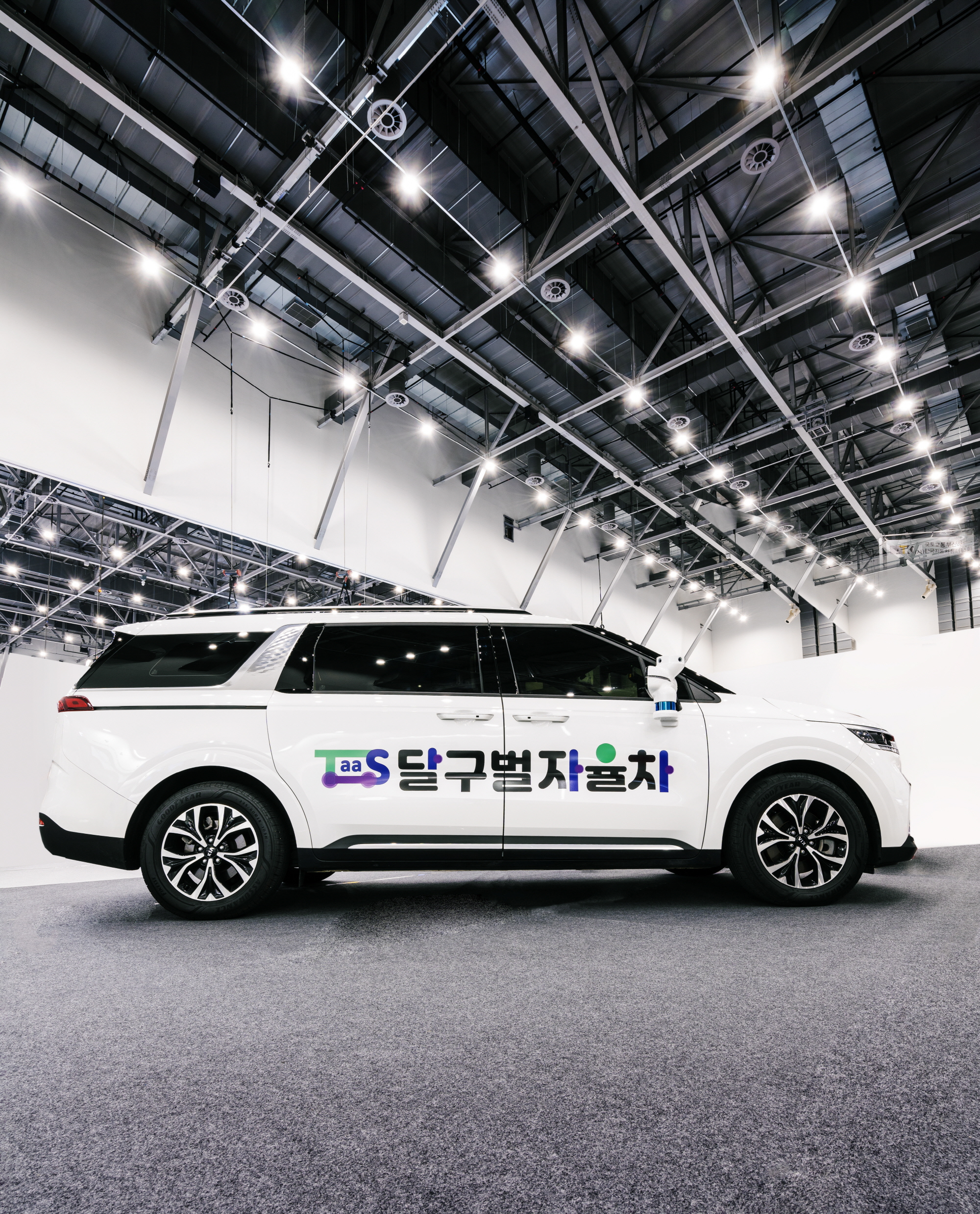
The autonomous shuttle bus from Kyungil University also caught attention. The shuttle bus, classified at level 3.5 of autonomy, has been operating daily for 7km between Kyungil University and Hayang Station for a year and a half. The Kyungil University representatives emphasized, “In the early operation phase, a driver and a vehicle manager were aboard, but after a year and a half of incident-free operation, we are now running with just the operator onboard.” Additionally, Kyungil University plans to operate long-distance trips with the self-driving bus at level 3.5 to transport students.
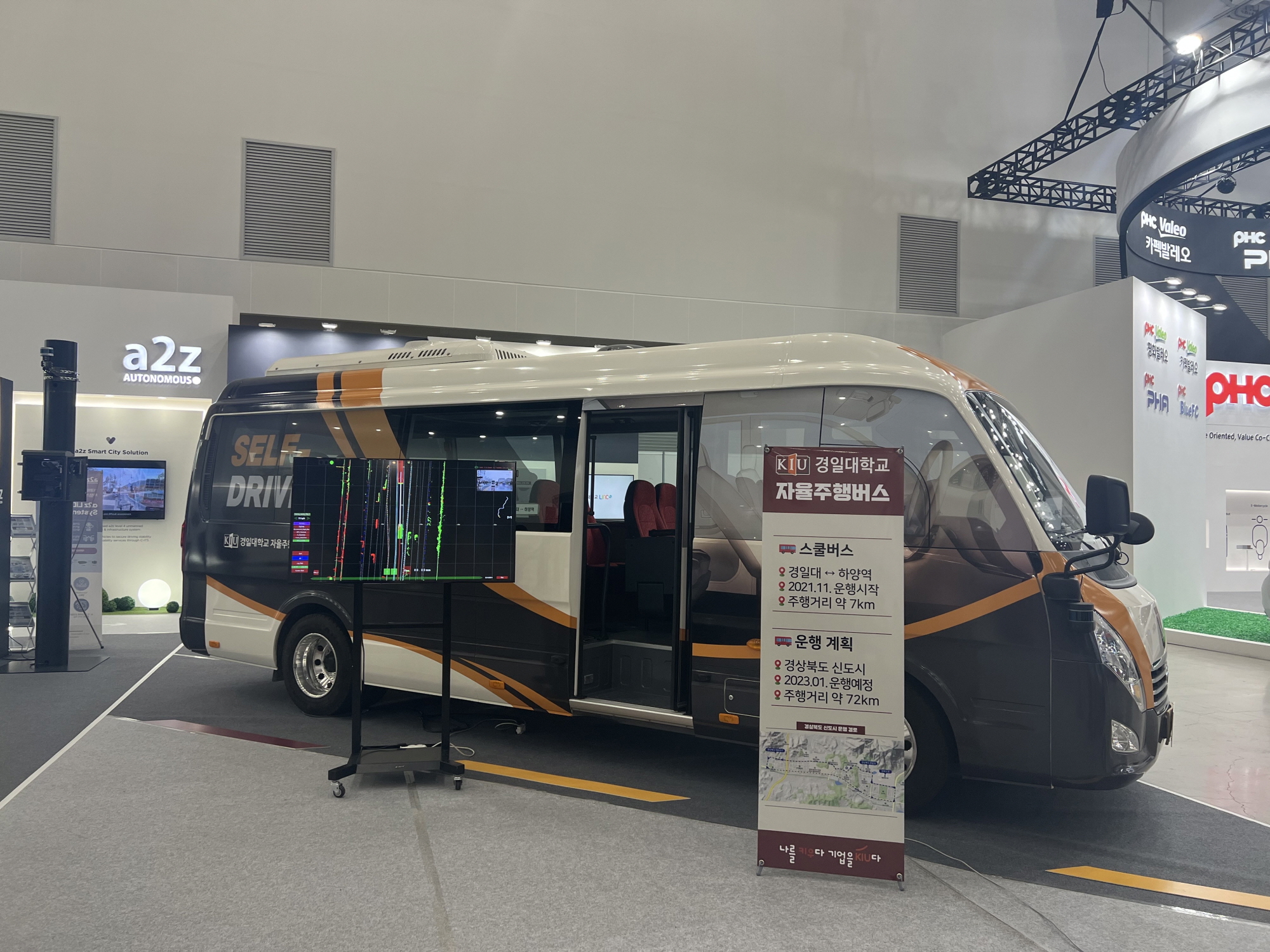
Lee Sang-jin daedusj@autodiary.kr

